Small amounts of water dripping from your air conditioner (AC) is normal. However, water puddling under the unit, leaking from the inside, or blowing out from the vent, means it’s time to get it checked. We’ve researched the possible reasons to help you identify why your air conditioner is blowing out water.
Water blowing out of your AC is not necessarily dangerous, but it can eventually cause damage to the unit if left unresolved. When you see water spitting out, it’s best to check the following:
- Blocked drain line
- Faulty installation
- Frozen freon coils
- Dirty air filter
You should also identify the type of liquid coming out of the AC unit. Condensed water from the moisture of the cold coil is okay. But a coolant leak can be harmful to your health and environment. Heating, ventilation, and air conditioning (HVAC) technical professionals can inspect and identify it using soap bubbles, ultraviolet dyes, or electric leak detectors.
Does everything sound too technical? Don’t worry. We’ll break it down for you further as you read along. Even if you can rely on HVAC professionals to fix the problem, personally knowing what could be wrong with your AC would be advantageous. You can oversee the repairs, make educated decisions, and ensure you don’t get overbilled for unnecessary fixes.
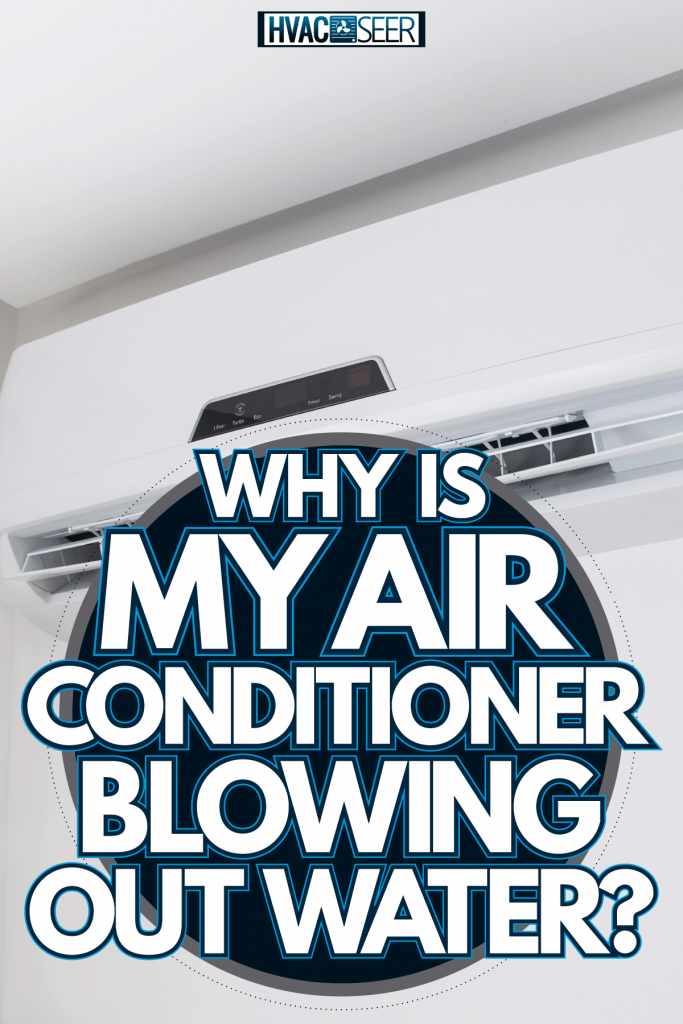
How It Works
Inside the air conditioner are two coils—one heats up, and the other keeps cold. Inside the coils is a chemical called freon that repeatedly evaporates to cool the coils continuously. When air drawn from the surroundings passes over the cold coils, the AC unit blows cold air into the room.
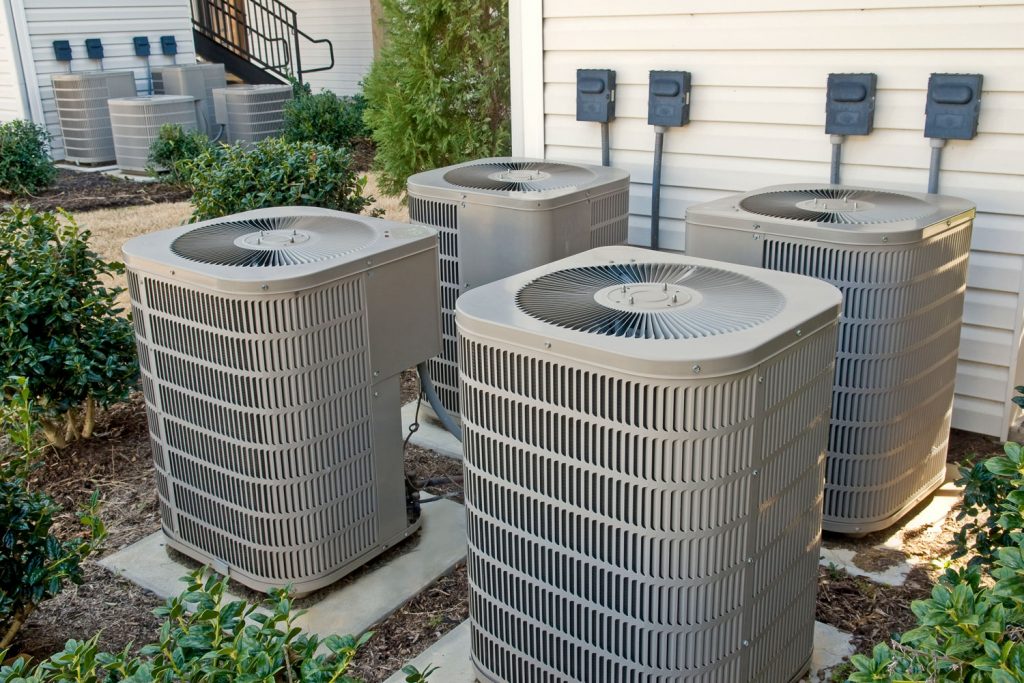
The repeated cooling process of the coil produces moisture and droplets of water. Some water re-evaporates and helps cool the coils, while the rest collects into the drain pan. Now, the slinger ring takes water from the drain pan and slings it into the freon coils to prevent it from overheating.
Is It Normal For The Aircon To Spit Water?
Small amounts of water coming out of an air conditioner is normal and part of its cooling process. It can drain between 5-20 gallons of water,r and this is still okay. What’s not normal is if the water is dripping and spitting indoors or if the spitting water seems like it's coming from a pressurized hose.
How Do I Know If My Air Conditioner Is Leaking Water Or Refrigerant?
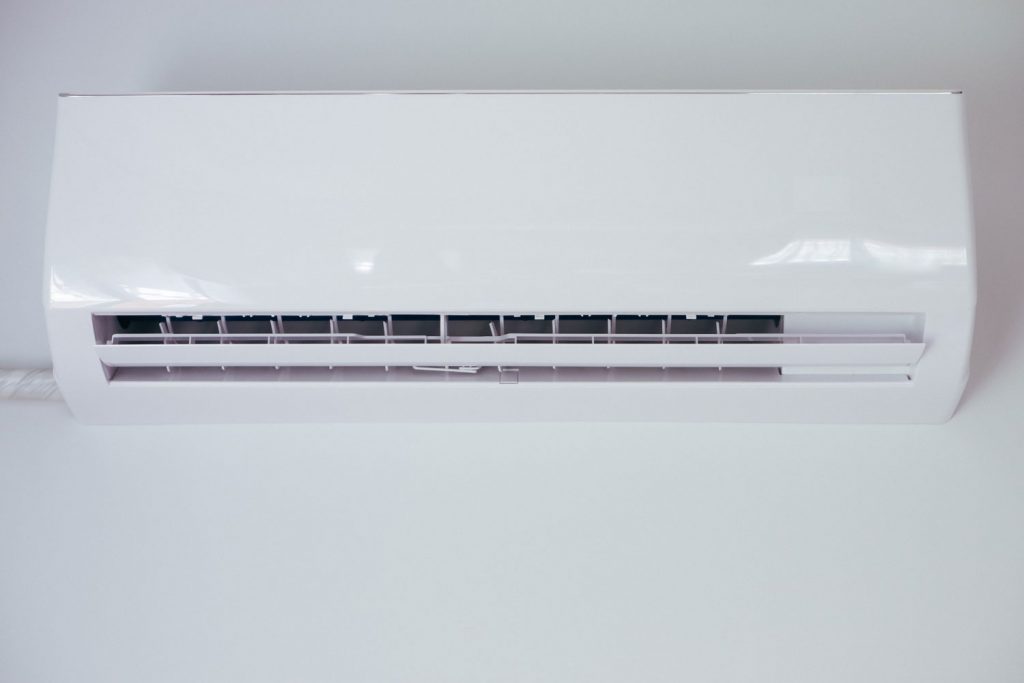
A simple way to know if your AC is leaking water is to soak a cloth with soapy and bubbly water, then wipe the condenser and evaporator coil. If it bubbles, it means that the freon is leaking out.
Freon is odorless and colorless, so it’s not easy to detect any leaks. Freon leaks can have negative effects on health and may cause dizziness, headache, vomiting, and nausea.
Reasons Why Your AC Is Spraying Water
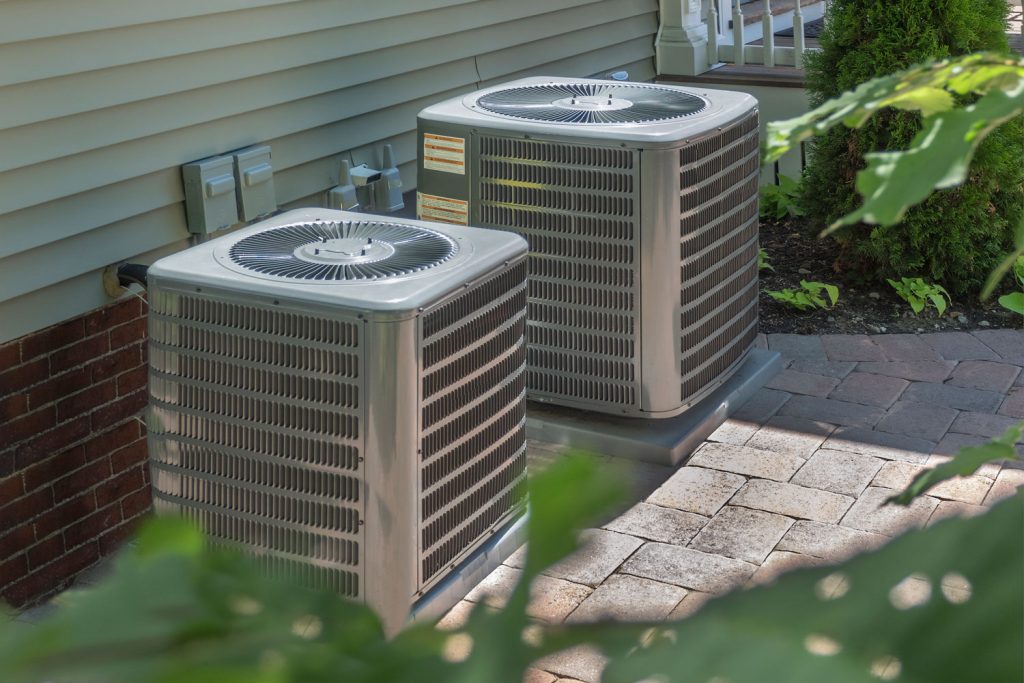
Excessive amounts of water leaking or spraying out of an AC unit is a cause of concern. Whether you have a window-type, centralized, ductless, or split-type, the cause of the leak is usually the same. Below are possible reasons why your unit is blowing out the water.
Blocked drain line
Having a small amount of water in the drain pan is normal, but when it is overfilled or has standing water, the problem is likely a blocked drain line. Air blowing into the coils can come with dust and dirt that mix with the water dripping into the drain line. Accumulated grime can clog the drain and backflow through the drain system, causing water to blow out the ducts.
Faulty installation
A faulty installation means the placement and angle of the AC unit are not level. The proper way to install an AC unit is at least 3-4 feet above the floor and on a leveled surface or slightly slanted outwards. You can tilt the unit no more than half an inch on the front end so the back end will drain condensed water outwards.
A faulty installation can cause poor air circulation, leaky air ducts, and compressor damage. Common signs of a badly installed unit include water leaks, poor cooling performance, and electrical problems.
Frozen freon coils
A frozen coil can ice up for reasons such as a dirty filter, low refrigerant charge, blower fan malfunction, and due to cold weather. All these can lead to major water leaks and sprays. It’s not easy to diagnose frozen coils because it’s not always visible, but some signs can tell you it could be the problem.
One of the biggest indicators that you have frozen coils is that your AC is not blowing cold air the way it used to. If you check the airflow in the supply register, you can feel that it’s warm or not blowing air at all. When you suspect a frozen coil problem, turn off the AC immediately, unplug it, and don’t try to use it unless the problem is resolved.
Dirty air filter
Dirty filters affect the overall performance of an AC unit. It can restrict airflow and cause the coils to freeze. The excessive water overflows in the drain pan when it defrosts, causing a water leak. Replacing and cleaning filters regularly improves the unit's performance and prolongs its life span.
It is recommended to clean AC filters once every two weeks or more frequently in more dusty environments. A simple cleaning of soap and water using a soft cloth should do the trick, and there’s no need to use any harsh cleaning agents. Flat filters can be replaced once a month, and pleated ones every three months.
How Do You Tell If Your AC Drain Is Clogged?
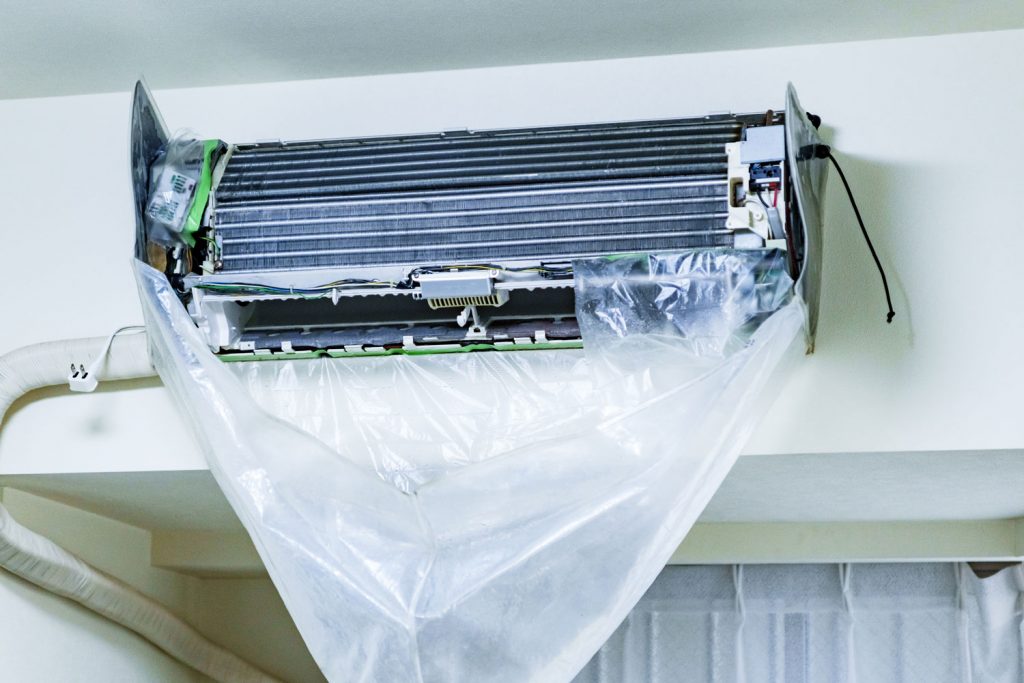
Common signs of a clogged drain line include a moldy smell in the air, the unit blowing warm air, and signs of water damage on the unit. You can try to unclog your drain by removing the pipe cap and removing any debris you can see. A more thorough cleaning is best done by HVAC professionals.
How To Fix Air Conditioner Spitting Water
If you are experiencing water leaks, turn your AC unit off, unplug it, let it rest, and shut off the breaker. Do not continue to use it, or it can damage the compressor and other components. You can safely do a basic filter and drain line cleaning on the first signs of poor AC performance.
If cleaning doesn’t solve the problem, it may be time for a professional maintenance team to assess the issue. They will do a routine inspection, thoroughly clean filters, adjust components, and ensure proper installation.
Cleaning and regular maintenance are key to preventing leaks from air conditioner units. If the cooling system is clear of obstruction, it will have better airflow and better cooling performance. For maintenance, it is recommended to replace filters regularly, clean clogged drains, and have the AC unit serviced by professionals at least once a year.
Takeaway
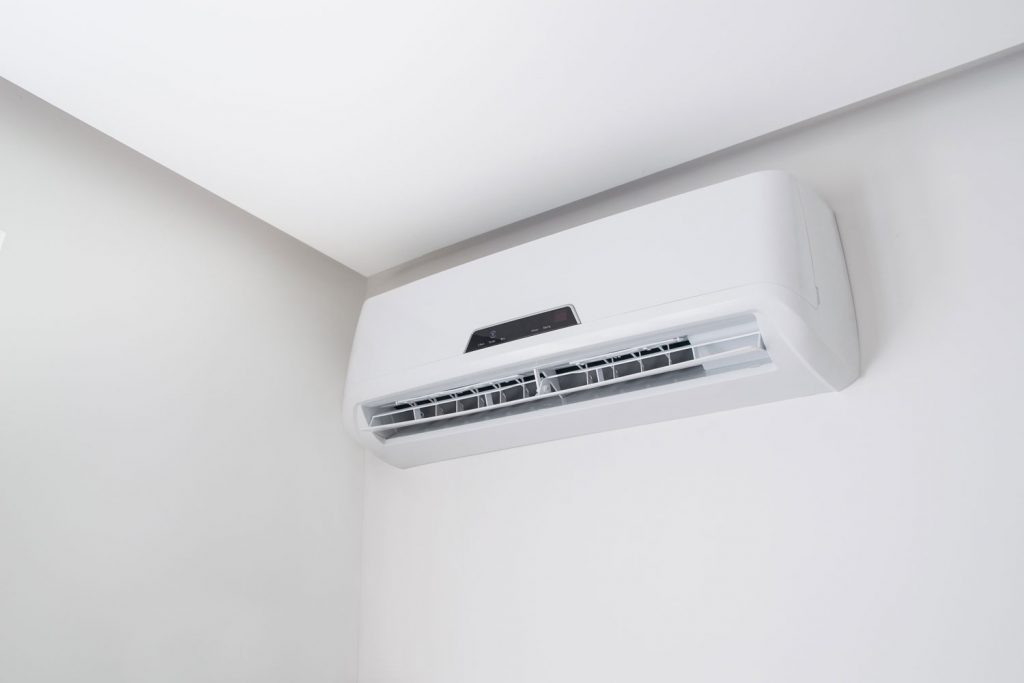
The most common causes of water leaks and spitting water from AC units are dirty filters, blocked drain lines, faulty installation, and frozen freon coils. You can DIY filter cleaning safely without causing any harm to the unit. However, if it doesn’t resolve the problem, calling for professional help will be the best solution. Regular filter cleaning and yearly professional servicing will extend the life of your air conditioner.
For more troubleshooting tips on leakage, check out our related posts:
Water Leaking From Furnace In Summer – What Could Be Wrong?
Portable Air Conditioner Leaking Water – What Could Be Wrong?

“Air conditioner blowing water is a common issue due to faulty AC, This blog will teach you how to identify the problem and what parts you’ll need in order to fix it.
Thank you for sharing the article.”